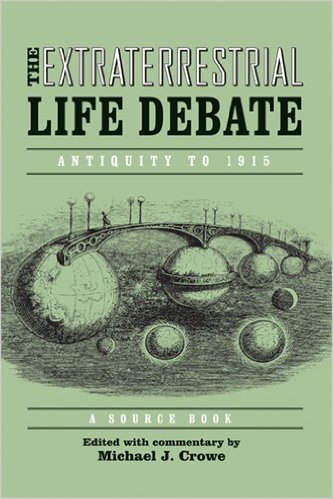“If we’ve settled on the fat that there’s nobody out there,” Fr. Brian Reedy SJ concludes, “then we would – kind of – rationally miss them, and feel alone . . .” –
First, though: the science behind the discovery is on its own truly astounding.
“What we actually know is deduced: it is modeled from the data,” explained Fr. Brian Reedy SJ, a biophysicist, who – along with his students at the Jesuit Cristo Rey Preparatory School in Houston, Tx. – has designed experiments that have been conducted aboard the International Space Station, and who is currently pursuing a PhD in Moral Theology at the Pontifical Gregorian University in Rome.
“We haven’t seen them, and we won’t see them for a while, because they are so distant,” Reedy told Vocaris Media’s flagship Thinking with the Church podcast. “What we see,” Fr. Reedy explained, “is changes to the intensity of the star,” measurements that require extremely sensitive telescopic hardware and highly sophisticated software.
 “Just think about the complexity,” involved in isolating the static created by atmospheric interference (the telescope used to make the observations is a terrestrial instrument located in Chile), “to focus in on the steady signal, looking for variations,” Reedy said. “There’re so many things to marvel at in this story,” Reedy offered, “the science itself is fascinating.”
“Just think about the complexity,” involved in isolating the static created by atmospheric interference (the telescope used to make the observations is a terrestrial instrument located in Chile), “to focus in on the steady signal, looking for variations,” Reedy said. “There’re so many things to marvel at in this story,” Reedy offered, “the science itself is fascinating.”
Fr. Reedy SJ speaks in detail about the marvels of the science in the special edition of Thinking with the Church.
He also addresses the questions the discovery occasions at the intersection of religion and science, including: how we might share the Gospel with an extraterrestrial race, why we might share it and to what end; whether aliens might be capable of incorporation into the Body of Christ, both as a matter of ecclesiology and sacramental economy; and what guidance there might be for such an eventuality in Church history and scriptural typology.
Fr. Reedy SJ offers some surprising and challenging answers, especially regarding the desire to know, once and for all, whether we are alone in the universe.
“I think that – I would say there are two causes to that [wonder]: one is just natural curiosity – like, when you look out into space, and you see the vastness of it, and you see all these little stars that all might have planets – and you just wonder, ‘Is there anybody out there?’ and that’s one kind of question,” Reedy said.
“‘Are we alone in the universe?’ That is a different kind of question,” Reedy continued. “‘Is there anybody out there?’ I relate to that really strongly. ‘Are we alone in the universe?’ I don’t resonate with that question, and I think that – partly – the thing that is missing is that, in Western Civilization we now live in a kind of forcibly depopulated universe,” He explained. “To the medieval mind,” he went on to say, “creation was deeply populated with other beings, spiritual beings: so, the average Christian would believe he had a guardian angel, who was really a rational companion to him in his life, and believed in angelic beings and such, that populated the universe; but also, the kind of real, lived sense of going to Mass and knowing that the whole Communion of Saints was present with you at the Mass.”
Indeed, as the great altars of Christendom attest, the whole Church, past, present and future, from Adam into eternity, is present each time the Mass is offered.
“There are still plurals,” Fr. Reedy noted in reference to the pertinent particular of grammatical structure found in the prayer texts printed in the Missal. “Even if a priest is forced to say Mass by himself because there is no congregation, he still uses the plurals, because he still knows that everyone is there – so, you’re not alone – you’re never alone – and so I don’t connect to that [question] because I think that ‘Are we alone?’ dimension is partly coming from the fact that our universe has been so radically depopulated, and relatively recently.”
“I believe that we are attuned naturally to truth,” Fr. Reedy said, “and I believe in the Communion of Saints and in spiritual beings, and so therefore I think we have a sense that they’re there.”
“If we’ve settled on the fat that there’s nobody out there,” he concluded, “then we would – kind of – rationally miss them, and feel alone: so, on the first part, I’m completely enthralled with the question, ‘Is there anybody out there?’ – like, when you look out, are there people looking back at us? – but, ‘Are we alone?’ – I don’t resonate to that one.”
Listen to the full podcast here.
Chris Altieri is the co-founder and General Manager of Vocaris Media. He hosts the flagship program of the Vocaris production arm, Thinking with the Church. He lives in Rome, Italy, with his wife and two children.
For more on theology and extraterrestrial life see: Oscar Best Picture Nominee “Arrival” and the Bearable Heaviness of Being
Please consider making a donation to this blog through the donation button on the upper right side of its homepage so that we can replace the bald tires on our car. You might miss me if I’m gone!
Stay in touch! Like Cosmos the in Lost on Facebook:












